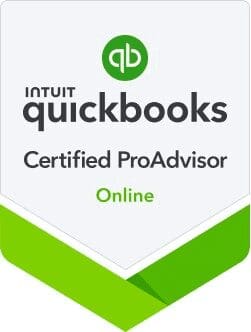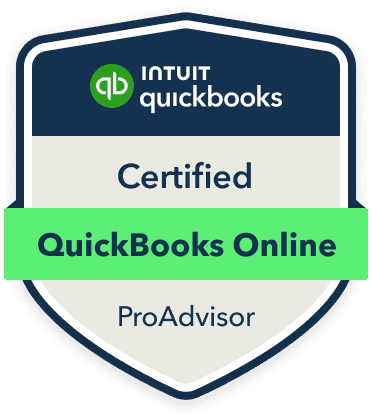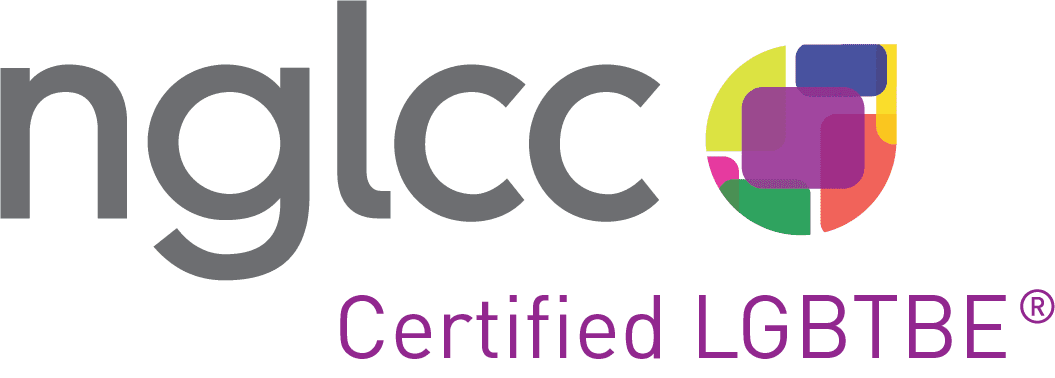Tackling your taxes in Reno can seem daunting, but with the right strategies and understanding, you can significantly reduce your tax liability. Whether you're a freelancer, a small business owner, or an individual filer, knowing the basics of tax credits and deductions can help you save money and optimize your financial health. In this article, we explore several practical tax reduction tips for residents of Reno, Nevada. From leveraging fully refundable tax credits that might increase your tax refund to making informed decisions between standard and itemized deductions, our aim is to simplify these concepts and present them in a manner that's easy to digest and apply. Furthermore, with the increasing trend of working from home, we also delve into deductions specific to home office setups.

As we go further, I'll illustrate how to identify which tax credits can be fully refundable and how you can benefit from environmental tax credits through energy efficiency upgrades. Understanding these areas will not only better your chances of reducing your annual Reno, Nevada taxes but also improve your overall financial strategies. We encourage our readers to consult with a tax professional to effectively implement these strategies and ensure compliance with local Reno, Nevada tax laws. Keep in mind, the key to maximizing your tax return lies in understanding the details of these tax-saving opportunities. By the end of this guide, you'll be equipped with actionable advice tailored specifically for Reno, Nevada taxes.
Navigating the complex world of Reno, Nevada taxes can be daunting, particularly when it comes to understanding which tax credits can be fully refundable. Fully refundable tax credits are especially beneficial as they can reduce your tax liability below zero, leading to a tax refund. This is particularly relevant for residents of Reno, Nevada, where taking advantage of such credits can significantly impact your financial health. One of the most impactful fully refundable tax credits is the Earned Income Tax Credit (EITC). Designed to assist low-to-moderate-income working individuals and families, the EITC reduces the amount of tax owed and may also provide a refund. The amount of the credit is determined by income, filing status, and the number of children. Importantly, not only can it reduce the tax owed to zero, but if the credit exceeds the amount of taxes owed, the excess is refunded to the taxpayer. For many in Reno, Nevada, this makes the EITC a crucial tool in boosting their annual financial health. Another significant fully refundable credit is the Child Tax Credit (CTC), which was expanded significantly under recent legislation. For qualifying families, the credit provides substantial financial relief by offsetting the costs of raising children. With its recent expansion under the American Rescue Plan for the 2021 tax year, the CTC became even more valuable, with a portion being fully refundable. This means that families in Reno could receive a refund even if they didn’t owe any income tax.
Several factors can affect your eligibility for refundable tax credits and the amount you can claim. For the EITC, income and family size are the primary determinants. It is crucial for taxpayers in Reno, Nevada, to keep their income documentation updated and accurate to maximize their potential credit. Additionally, for the CTC, the age of the children and care expenses are also determinative factors. Knowing the nuances of these credits can make a substantial difference in your tax outcomes. Understanding these credits and applying them correctly can significantly impact the amount of your tax refund. Consulting with a tax professional or using trusted tax preparation software can help ensure that you are maximizing these opportunities while remaining compliant with Reno, Nevada taxes.
Understanding the difference between standard and itemized deductions is crucial for enhancing your tax savings, especially in Reno, Nevada. When you file your tax return, you have the option to choose between these two methods to reduce your taxable income. The method you choose can significantly affect your tax liability and potentially lead to substantial savings, depending on your financial circumstances. The standard deduction is a fixed amount that the IRS allows taxpayers to subtract from their income before income tax is applied. It changes from year to year, adjusted for inflation, and varies according to your filing status—single, married filing jointly, married filing separately, or head of household. This deduction is appealing because of its simplicity and the fact that it requires no detailed record-keeping or receipts.
On the other hand, itemized deductions require a taxpayer to keep track of allowable expenses throughout the year. These expenses can include mortgage interest, state and local taxes (SALT), charitable contributions, medical expenses that exceed a certain percentage of your income, and unreimbursed business expenses, among others. If the total amount of your itemized deductions exceeds the standard deduction amount, it may be beneficial to itemize your deductions to decrease your taxable income further. This is particularly relevant for residents in Reno, Nevada, where certain local taxes and deductions could impact your overall tax savings.
Deciding whether to take the standard deduction or to itemize will depend on your personal financial situation and how it aligns with Reno, Nevada's tax landscape. As a general guideline, if your itemized deductions are greater than your standard deduction, itemizing will save you money. However, calculating whether you benefit more from itemizing requires detailed record-keeping and a thorough understanding of what deductions are allowed. For many taxpayers in Reno, particularly those with mortgages or substantial deductible expenses such as medical bills or charitable contributions, itemizing deductions could result in a lower tax bill. Those who rent rather than own a home, or who live in states with low personal income tax, may find that the standard deduction saves them more.
It's also worth noting that recent tax law changes have affected the calculations for many taxpayers, including those in Reno, Nevada. For instance, the Tax Cuts and Jobs Act of 2017 significantly increased the standard deduction and placed limits on certain itemized deductions, such as the SALT deduction. As a result, fewer taxpayers may find it beneficial to itemize deductions compared to past years. To make an informed decision, consider both the amounts and the additional effort required for itemizing, particularly in the context of Reno's tax environment. Using software or consulting with a tax professional familiar with Reno, Nevada taxes can provide clarity, ensuring that you take full advantage of the deductions available and make the most financially sound decision.
The shift toward remote work has made home offices a common feature in many workers' lives. For those who have transitioned to working from home, either partially or fully, knowing how to properly handle home office deductions can lead to significant tax savings. It's important to understand the specific requirements set forth by the IRS to ensure eligibility and to maximize your benefits while maintaining compliance with Reno, Nevada taxes. Firstly, to qualify for home office deductions, the space must be used regularly and exclusively for business purposes. This means the area designated as your office cannot double as a part-time family room or a guest bedroom. The use must be consistent and solely for work-related activities. Eligibility also hinges on the role your home plays in your business—the space must be either your principal place of business or a place where you regularly meet with clients or patients.
Firstly, to qualify for home office deductions, the space must be used regularly and exclusively for business purposes. This means the area designated as your office cannot double as a part-time family room or a guest bedroom. The use must be consistent and solely for work-related activities. Eligibility also hinges on the role your home plays in your business—the space must be either your principal place of business or a place where you regularly meet with clients or patients.
Important Note: The home office deduction is NOT available to W2 earners. If you have a job and receive a W2 form, you do not qualify for this deduction. However, if you have any 1099 income, are a small business owner, or have a side hustle, you can use home office deductions to reduce your net income to zero. It's essential to note that while you can reduce your income to zero, you cannot go into a loss with those expenses.
Once you've established that your home office meets these criteria, you can begin to explore the deductions available. These typically include a portion of household expenses, such as utility costs, internet charges, and home maintenance, prorated based on the size of your home office as a percentage of your home's total area. This approach requires keeping thorough records of all relevant expenditures, which can be advantageous if your home office expenses are high. The IRS offers two methods for calculating home office expenses: the simplified option and the regular method. The simplified option allows for a standard deduction of $5 per square foot of your home used for business, with a maximum of 300 square feet, translating to a maximum deduction of $1,500 annually. This method reduces paperwork and simplifies the process, making it an attractive option for many. However, if you have significant home office expenses, the regular method might be more beneficial. This approach involves calculating the actual expenses associated with maintaining your home office. You'll need to determine the percentage of your home's total square footage that the office occupies and apply this percentage to your total home expenses. Categories eligible for full deductibility include directly related expenses such as painting or repairs solely for your office area.
Regardless of the method chosen, keeping detailed records is crucial. Receipts, utility bills, and records of home improvements should be meticulously maintained to support your deductions if ever questioned by the IRS. Planning and foresight can help optimize your tax return, ensuring you receive the maximum legitimate benefits from your home office arrangements in Reno, Nevada.
In today's eco-conscious market, homeowners and businesses are increasingly motivated to reduce their energy usage and enhance their property's efficiency. The benefits of making energy-efficient upgrades are manifold, encompassing not only reduced utility costs and increased property value but also significant tax advantages. U.S. federal and state governments, recognizing the importance of environmental sustainability, offer various tax credits that incentivize these improvements. Exploring these options can result in considerable savings while supporting ecological goals. Tax credits, unlike deductions, provide a dollar-for-dollar reduction in the amount of tax owed, thereby offering a more impactful financial benefit. For instance, the Residential Renewable Energy Tax Credit allows homeowners to deduct 26% of the cost of installing solar energy systems from their federal taxes for the year 2020, with the credit set to decrease to 22% in 2021 before expiring in 2022. Similarly, the Nonbusiness Energy Property Credit supports the installation of energy-efficient heat pumps, insulation, doors, and windows by offering a tax credit for 10% of the cost, up to $500.
To fully leverage these environmental tax credits, it is crucial for consumers to stay informed about the eligibility criteria and application process. The qualifications for tax credits can vary based on the specific improvements undertaken and the products installed. For example, not all energy-efficient appliances qualify for these credits, and the specifics can differ from one state to another. Thus, it is essential for taxpayers to consult the latest guidelines from the IRS or their state's taxation office or seek advice from professionals like Rough & Accounting. Homeowners in Reno, Nevada, should also be aware that some tax credits require the improvements to be on their primary residences, while others can extend to secondary homes or new construction. Keeping receipts and maintaining detailed records of all improvements are crucial steps to ensure the smooth processing of these tax benefits and compliance with Reno, Nevada tax laws. Furthermore, for those planning significant renovations, considering the timing and scale of purchases can be strategically beneficial in maximizing tax credits.
Secure Your Financial Future with Expert Tax Strategies
Understanding and implementing tax reduction strategies is essential for optimizing your financial health in Reno, Nevada. By leveraging fully refundable tax credits, choosing the right deduction method, and utilizing deductions for home office expenses, you can significantly reduce your tax liability. Additionally, taking advantage of environmental tax credits for energy efficiency improvements can provide further savings while contributing to a more sustainable future. However, navigating the complexities of Reno, Nevada tax laws can be challenging, so consulting with a tax professional is highly recommended to ensure you maximize your benefits and remain compliant with all regulations. With careful planning and informed decisions, you can achieve substantial tax savings and enhance your overall financial strategy.
For personalized tax advice and to learn more about how you can optimize your tax situation, contact us at Rought and Accounting. Our team of experts is here to guide you through every step of the process, ensuring you make the most of every tax-saving opportunity regarding your Reno, Nevada taxes. Reach out today to schedule a consultation and take the first step toward a more secure financial future.
Reno, Nevada, is rapidly becoming a hotspot for startups, thanks to its supportive ecosystem, strategic location, and growing tech scene. For entrepreneurs, investors, and anyone interested in economic development, understanding Reno's startup ecosystem can provide valuable insights into the opportunities and challenges that come with starting a business in this dynamic city.

Startups in Reno are significant job creators, especially in the technology and sustainable industries. Over the past few years, the city has seen a surge in new businesses, which has contributed to lower unemployment rates and provided a variety of job opportunities for the local workforce.
The Economic Development Authority of Western Nevada (EDAWN) reports that nearly 100 startups have sprung up in the Reno-Sparks area in just two years. These startups are not only creating jobs but are also attracting skilled professionals to the region, further enhancing the local talent pool.
Reno's startup ecosystem is a breeding ground for innovation and technology growth. The influx of startups brings new technologies and stimulates innovation, positioning Reno as a tech hub in Nevada. This growth is supported by various local resources and initiatives aimed at fostering entrepreneurship.
Institutions like the University of Nevada, Reno’s Innevation Center and the Reno Collective co-working space provide startups with access to mentorship, networking opportunities, and essential resources. These hubs are crucial for tech startups looking to develop cutting-edge solutions and bring them to market.
Traditionally known for its gaming and tourism industries, Reno is now seeing significant economic diversification thanks to the rise of startups. This diversification reduces economic volatility and makes the local economy more resilient to industry-specific downturns.
Startups in fields such as renewable energy, fintech, and advanced manufacturing are broadening the economic base of Reno. This shift is crucial for long-term economic stability and growth, as it mitigates the risks associated with dependence on a few major industries.
The growth of startups in Reno has a positive impact on community development. Increased business activity leads to more community projects and enhancements in public infrastructure and services. This, in turn, improves the quality of life for residents and makes the city more attractive to potential investors and entrepreneurs.
Events like the Reno Startup Week and the support from organizations like StartUpNV and Nevada SBDC play a pivotal role in building a vibrant entrepreneurial community. These initiatives foster collaboration, drive innovation, and create a sense of community among local businesses.
If you're considering starting a business or investing in Reno, now is the time to explore the opportunities within this thriving startup ecosystem. Contact Rought & Accounting for a consultation to learn how our expert financial advice and strategic planning can enhance your entrepreneurial journey. We offer tailored solutions to help you navigate the challenges and maximize the opportunities in Reno's dynamic market.
As a business owner, understanding the differences between accountants and bookkeepers is crucial for making informed decisions about your financial management. Whether you're searching for accounting and bookkeeping services near or trying to figure out which professional you need, knowing their distinct roles is essential. Both roles are essential, but they serve different purposes. In this article, we'll explore the responsibilities, qualifications, costs, and how to choose the right service for your business needs.
Accountants play a vital role in your business by preparing financial statements, conducting audits, filing taxes, and providing strategic financial advice. They ensure compliance with laws and regulations, helping you navigate the complexities of financial management. Accountants often hold certifications such as CPA (Certified Public Accountant), which signifies their expertise and commitment to professional standards.

Bookkeepers manage the daily financial transactions of your business. They record transactions, manage accounts payable and receivable, and maintain accurate ledgers. While their role is more administrative, ensuring that records are accurate and up-to-date is crucial for the smooth operation of your business. Unlike accountants, bookkeepers typically do not provide in-depth financial analysis or strategic planning.
Accountants usually hold a bachelor's degree in accounting or finance and may pursue additional certifications like CPA, CMA (Certified Management Accountant), or CFA (Chartered Financial Analyst). This advanced education and certification enable them to handle complex financial tasks and offer strategic insights.
Bookkeepers often require a high school diploma or an associate degree. Certification programs, such as those from the American Institute of Professional Bookkeepers (AIPB), can enhance their qualifications. These programs demonstrate their expertise and commitment to maintaining high standards in bookkeeping.
Due to their advanced qualifications and broader scope of services, accountants generally charge higher fees. Their services are ideal for tasks requiring detailed financial analysis, tax preparation, and strategic financial planning. Investing in an accountant can be beneficial for long-term financial health and compliance.
Bookkeepers typically charge lower fees compared to accountants. They are perfect for managing daily financial transactions, maintaining accurate records, and ensuring compliance with basic financial regulations. For small businesses or those with straightforward financial needs, bookkeepers offer a cost-effective solution.
Evaluate your business needs to determine whether you require the detailed financial analysis and advisory services of an accountant or the daily transaction management of a bookkeeper. Assess the complexity of your financial situation and the specific tasks you need help with.
Consider your budget and the complexity of your financial needs. If your business is small and primarily requires help with basic financial tasks, a bookkeeper may be sufficient. For more complex financial management and strategic planning, an accountant is the better choice.
Some businesses benefit from using both accountants and bookkeepers. Bookkeepers handle daily transactions and record-keeping, while accountants provide higher-level analysis and strategic advice. This hybrid approach ensures comprehensive financial management tailored to your business's needs.
After reading this article, we encourage you to contact Rought & Accounting for personalized advice on your specific financial needs. Visit our website or schedule a consultation to learn how our accounting and bookkeeping services near me can benefit your business.
In the nonprofit sector, transparency and trust are paramount. Organizations rely on the goodwill and generosity of donors, and maintaining this trust is essential for their operations. One of the most effective ways to enhance transparency and build trust is through external audits. In this article, we will explore the importance of external audits for nonprofits and how they can significantly impact the organization’s credibility and effectiveness.

External audits involve an independent auditor examining a nonprofit’s financial records to ensure accuracy and compliance with accounting standards and regulations. Unlike internal audits, external audits provide an objective assessment as the auditor is not affiliated with the organization.
External audits are crucial because they offer an unbiased view of the nonprofit’s financial health. This transparency helps to identify any discrepancies, mismanagement, or potential areas for improvement. For nonprofits, where every dollar must be accounted for, an external audit is a tool to ensure financial integrity and accountability.
Additionally, external audits help nonprofits maintain accurate records, which are essential for making informed decisions and strategic planning. They also provide valuable insights into the organization’s financial practices, helping to streamline operations and reduce inefficiencies.
Rought & Accounting specializes in helping nonprofits navigate the complex landscape of regulatory compliance. Our expertise ensures that your organization meets all legal requirements, safeguarding your tax-exempt status and reinforcing your commitment to transparency.
Donors are more likely to support organizations that demonstrate financial transparency and accountability. An external audit provides a seal of approval, indicating that the nonprofit’s financial statements are accurate and reliable. This assurance can significantly boost donor confidence.
When donors know that an independent auditor has reviewed the financials, they are more likely to trust that their contributions are being used effectively. This trust is crucial for retaining existing donors and attracting new ones. Furthermore, audited financial statements can be a powerful tool in fundraising efforts, showcasing the nonprofit’s commitment to transparency and integrity.
Nonprofit credibility is also enhanced through external audits. Organizations that regularly conduct external audits are viewed as more trustworthy and professional. This credibility can open doors to new funding opportunities and partnerships, furthering the nonprofit’s mission and impact.
Compliance with legal and regulatory requirements is a critical aspect of nonprofit management. External audits play a vital role in ensuring that the organization adheres to these standards. By conducting regular audits, nonprofits can identify and address any compliance issues before they become significant problems.
Auditors review the nonprofit’s financial statements and practices to ensure they comply with Generally Accepted Accounting Principles (GAAP) and other relevant regulations. This compliance is not only necessary to avoid legal repercussions but also to maintain the organization’s tax-exempt status.
Moreover, an external audit can help nonprofits prepare for potential regulatory changes. Auditors often provide recommendations on best practices and emerging trends in nonprofit accounting, helping organizations stay ahead of the curve.
Many nonprofits have experienced significant positive transformations through regular external auditing. For instance, a small education-focused nonprofit in Nevada saw an increase in donor contributions by 25% after implementing annual external audits. The transparency provided by the audits reassured donors that their money was being used effectively, leading to increased trust and support.
Another example is a health-related nonprofit that identified several areas of financial mismanagement through an external audit. By addressing these issues, the organization improved its financial practices, reduced waste, and redirected funds towards more impactful programs. The result was a 30% increase in program efficiency and better outcomes for the communities they served.
These case studies highlight how external audits can lead to improved financial health, greater efficiency, and enhanced trust within the nonprofit sector. They demonstrate the tangible benefits of adopting a culture of transparency and accountability through regular auditing.
Understanding the importance of external audits can significantly enhance transparency, trust, and efficiency for your nonprofit. If you're considering implementing external audits or advising others in the sector, now is the time to take action. Contact Rought & Accounting for a consultation to learn how our enrolled agent can provide expert financial advice and strategic planning to enhance your nonprofit’s operations and ensure compliance with regulatory standards.
Developing a robust accounting system is crucial for the success of any startup. Efficient accounting practices ensure accuracy, compliance, and strategic decision-making, helping your business thrive in a competitive landscape. At Rought & Accounting, we specialize in guiding startups through the maze of financial management, ensuring that your accounting systems are not just compliant but also optimized for your unique business needs.

In the fast-paced world of startups, efficiency is key. Automating repetitive accounting tasks such as expense management, bank reconciliation, payroll processing, and financial reporting can save invaluable time and reduce errors. Automation enhances the effectiveness of your accounting operations, allowing you to focus on core business activities while maintaining accurate financial records.
The digital age has made cloud-based accounting solutions a game-changer for startups. By adopting cloud storage, you minimize the reliance on paper, leading to increased productivity and significant environmental benefits. Cloud-based systems secure your data and improve accessibility, ensuring that you can manage your finances anytime, anywhere, with just a few clicks.
Selecting the right accounting software is pivotal for your startup. It should align with your business’s specific needs, offering the right features, user-friendliness, and compatibility with your operations. Instead of relying solely on free trials, which may require repeatedly setting up your books, invest time in thorough research and request demonstrations from software providers. This approach helps ensure the software not only fits your current needs but also accommodates future growth.
The world of accounting is ever-evolving, and so should your accounting system. Regular evaluations and updates are essential to keep your system efficient and compliant. Additionally, investing in training and support services ensures that your team can maximize the benefits of your accounting software, keeping your startup ahead of the curve.
At Rought & Accounting, we understand the challenges startups face in developing and improving their accounting systems. Our expertise is tailored to help you streamline your accounting processes, reduce manual errors, and make informed financial decisions. Whether you’re laying the foundation of your startup’s accounting system or looking to optimize an existing one, our team is here to guide you every step of the way.
Developing and improving your startup’s accounting system is a vital step towards securing its financial health and future success. By embracing automation, cloud-based solutions, and the right software, you can build a robust accounting framework that supports efficient operations and strategic decision-making. Remember, at Rought & Accounting, we’re more than just your accountants; we’re your partners in growth, dedicated to helping your startup navigate the complexities of financial management.
In the heart of Nevada, Carson City residents are known for their spirited independence and innovative spirit. Yet, when it comes to personal finance, even the most independent among us can benefit from professional guidance. Rought & Accounting, a steadfast pillar in the Carson City community, understands the unique financial landscape you navigate. This article delves into how an accountant's expertise can be your compass in the complex world of personal finance, specifically tailored for the residents of Carson City.

Personal finance is as unique as the individual. It's about understanding your current financial situation, your financial goals, and the strategies that will help bridge the gap. A professional Carson City accountant can offer bespoke advice, whether you're saving for your child's education, planning for retirement, or investing in property. With a deep understanding of local economic conditions, tax implications, and investment opportunities, an accountant provides not just information but a roadmap tailored to your aspirations and lifestyle.
Goal setting is the cornerstone of personal finance. An accountant helps you set realistic and achievable financial goals, then crafts strategies to meet them. This might include budgeting, investment planning, or debt management strategies. By providing a fresh perspective and expert insight, an accountant ensures your financial plans are robust and adaptable to changing circumstances.
Every individual faces their own set of financial challenges. It might be managing debt, understanding investment options, or simply finding ways to save more effectively. These challenges are often compounded by the ever-changing tax laws and financial regulations. A Carson City accountant is well-versed in these areas and can provide clarity and direction, helping you to navigate through these challenges with confidence.
Professional guidance can be the key to overcoming these challenges. Accountants provide not just solutions but also education, empowering you to make informed decisions about your finances. They stay abreast of the latest financial products, investment strategies, and tax-saving opportunities, ensuring you're always ahead of the curve.
Taxes can take a significant bite out of your finances if not properly managed. Carson City's accountants are experts in local and federal tax laws, ensuring you benefit from all available deductions and credits. They can guide you through complex tax planning strategies, helping to minimize your liabilities and maximize returns, all while ensuring full compliance with the law.
Effective tax planning is a year-round activity, not just a year-end rush. An accountant can help you plan and make adjustments throughout the year, ensuring that tax time is a smooth and stress-free process. This proactive approach can lead to significant savings and a more favorable financial position.
Long-term financial planning is about looking ahead, crafting a vision for the future, and setting in motion the strategies that will get you there. Whether it's retirement planning, estate planning, or setting up a college fund, an accountant can provide the insight and advice you need to ensure your financial future is secure.
Investing is a critical component of long-term financial health. Yet, with so many options available, it can be overwhelming. An accountant can help demystify the investment landscape, recommend strategies that fit your risk tolerance and financial goals, and monitor these investments to ensure they remain aligned with your objectives.
Understanding the importance of managing personal finances effectively is just the first step. The next is to take action. Rought & Accounting invites Carson City residents to contact us for a personal consultation. Let us help you navigate the complexities of personal finance, tailor strategies to your unique needs, and set you on a path to improved financial health.
In the vibrant city of Carson City, your financial wellbeing is too important to leave to chance. Partner with Rought & Accounting, and let us be your guide to a more secure and prosperous financial future. Together, we can ensure that your financial journey is not just successful, but also aligns with the life you aspire to live. Contact us today and take the first step towards a brighter financial tomorrow.



